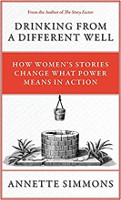
Image by Gerd Altmann
Narrated by the author.
Watch video version on InnerSelf or on YouTube.
“Basically, what we do for a living is we slay dragons. And when we are done, there is always another dragon just around the corner.” All heads nodded and a few fists went up in the air. The executive pointed at a PowerPoint image of a knight standing over a slain dragon. He was proud of his use of storytelling to bring clarity to daily struggles.
This habit of framing problems as an imaginary battle between good and evil, distorts our awareness of the importance of balancing conflicting priorities, and of considering both sides of the paradoxes we encounter in the everyday process of doing business. We need both quality and quantity, competition and collaboration, and yes, clarity and ambiguity. War narratives misrepresent paradoxes as battles that can be won decisively.
The habit of framing problems as battles to win or dragons to slay is often a mistake. What we characterize as a dragon almost always represents the shadow side of a couplet. The dragon of fear limits risks, and the dragon of burnout stalks achievement. But these are not simple zero-sum challenges in which one side wins and the other loses.
Fear also focuses attention, and burnout is a result of too much achievement. Deciding to defeat one side or the other only causes more problems. Long term success requires that we learn how to manage both sides of a long list of contrasting priorities instead of vanquishing one side for the sake of the other.
Embracing Paradoxes
There’s an old facilitator exercise in which a leader asks members of a group to pair up and grasp each other’s hands. For sixty seconds, each sees how many points they can score by pulling their partner’s hands across the imaginary boundary between them. Most pairs wind up struggling against each other: their faces red with effort. By the end, they achieve scores of less than ten.
But in my experience, there are always a few clever partners who realize that collaborating will give them both the advantage. They swap turns, scoring up to sixty “wins” apiece. Embracing paradoxes, such as the good of the individual and the good of the collective, is much more efficient than treating the paradox as if it’s a competition between us and them, right and wrong, or good and bad.
The Problem with “Killing it”
To increase speed, focus, and kill rates, traditional military training teaches tactics designed to inhibit empathy and pre-empt moral quandaries. S.L.A. Marshall, a famed combat historian, estimated that only 20 percent of World War II soldiers actually pulled the trigger in combat situations. In response, the military developed new training to automate behavior and desensitize soldiers to their emotions, increasing the kill ratio up to 85 percent during the Vietnam War. This ratio continues to “improve” to this day.
Recently I learned about new, advanced tactics from a young West Point graduate, who explained them to me with unsettling clarity and enthusiasm. Clearly, he did not suffer from the same internal alarms I felt during our discussion. He was quick to point out that on a battlefield, my caution would translate into weakness that could result in greater harm down the line.
I could have pointed out that inhibiting empathy might be just as harmful down the line. But he had already been trained to discredit my line of reasoning. I couldn’t blame him for thinking in terms of war narratives. That was what he’d been trained to do. But it’s a clear indication that lionizing those who win also steals the dignity of those who prioritize collective well-being as well as personal gain.
The Role of Moral Restraint
Without a doubt, if winning is the only goal, it is highly efficient to eliminate any hesitation caused by empathy. Moral restraint only slows things down — because it stimulates empathies that discourage ruthless wins and economic exploitation.
Competitors increase their speed when they do not pause to check their moral consciences. And yes: focus immediately improves when you avoid the complexity of integrating multiple perspectives with conflicting priorities. Power brokers happy to let the chips fall where they may save time and energy that might otherwise be spent investigating, anticipating, and avoiding “unpredictable” negative consequences.
In many current power structures, fighting to win is better rewarded than preserving stability, distributing resources, or protecting the environment. Several powerful men have told me point blank that viewing life from a collaborative point of view is straight out “boring.” But we can’t afford to let powerful men continue to treat the planet as a gaming arena for imaginary wars.
The Cost of Winning
To win at all costs, or act as if failure is not an option, rationalizes harm done to one side or the other, usually both. As long as war narratives control our perceptions of power, the desire to avoid harm and protect strangers looks like a weakness. Sharing resources with someone who can never pay you back is no way to win a war.
In a war scenario, only a weakling dodges the harm of battle. But ultimately, framing problems with battle narratives actually ensures an increase in collective losses.
Increasingly, we see even fields such as health care and economics framed by war narratives. It’s an approach that ultimately discourages collaboration and discredits empathy. It blocks the kind of emotional reasoning that moderates greed, and discredits and minimizes moral concerns as inefficient or weak. We must find a way to reverse this trend.
Unless we find a way to reinvigorate moral emotions, we could easily win our way to vanquishing our chances of collective well-being — at a time when clearly, every individual’s behavior and decisions have an impact on the community as a whole. But if we can succeed in dialing down our reliance on war narratives for the sake of collective survival, then our opinions on the nature, purpose and use of power will change — we can reevaluate what power is, what it is for, and who should have it.
In the collective narrative, large-scale efforts to reduce harm by providing free health care and reducing poverty by redistributing economic resources will look far more heroic than heroes who slay dragons that, likely, had something important to say.
Copyright 2022. All Rights Reserved.
Book by this Author:
Drinking from a Different Well
Drinking from a Different Well: How Women’s Stories Change What Power Means in Action
by Annette Simmons
 Packed with investigations into women’s narratives, the book delves into the role of instincts, perceptions, judgment, and ownership, and looks at the paradox of gendered points of view, the differences in the female and male view of power, and the critical importance of avoiding power struggles. Business and global affairs are filled with modern-day Cassandras — but Drinking from a Different Well provides a powerful strategy for blending perspectives to best solve today’s challenges. The book’s reader's guide and discussion questions make this an invaluable text for leadership study groups.
Packed with investigations into women’s narratives, the book delves into the role of instincts, perceptions, judgment, and ownership, and looks at the paradox of gendered points of view, the differences in the female and male view of power, and the critical importance of avoiding power struggles. Business and global affairs are filled with modern-day Cassandras — but Drinking from a Different Well provides a powerful strategy for blending perspectives to best solve today’s challenges. The book’s reader's guide and discussion questions make this an invaluable text for leadership study groups.
For more info and/or to order this book, click here. Also available as a Kindle edition and as an Audiobook.
About the Author
Annette Simmons is a keynote speaker, consultant, and author of four books including The Story Factor, listed in The 100 Best Business Books of All Time. She got her business degree from Louisiana State University in 1983, spent ten years in Australia in international business, got an M.Ed. from North Carolina State University (1994), and founded Group Process Consulting in 1996.
Her new book is Drinking from a Different Well: How Women’s Stories Change What Power Means in Action. Learn more at her book’s website or visit her website at AnnetteSimmons.com

























